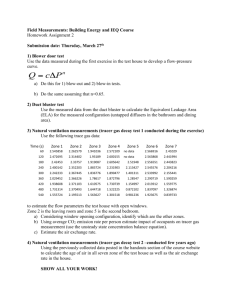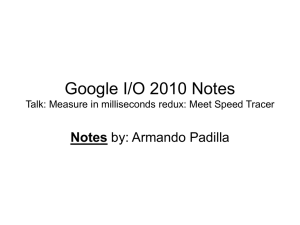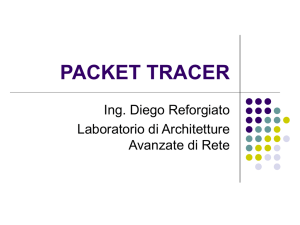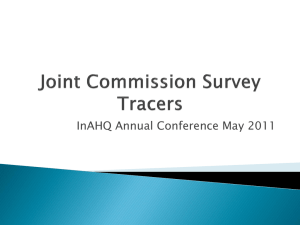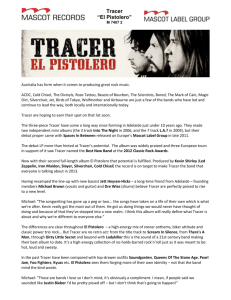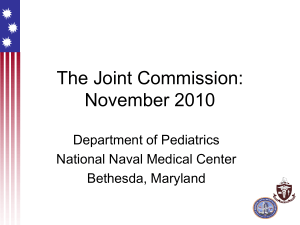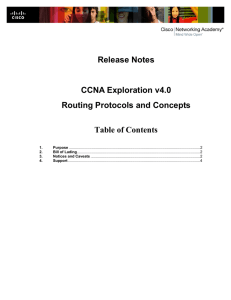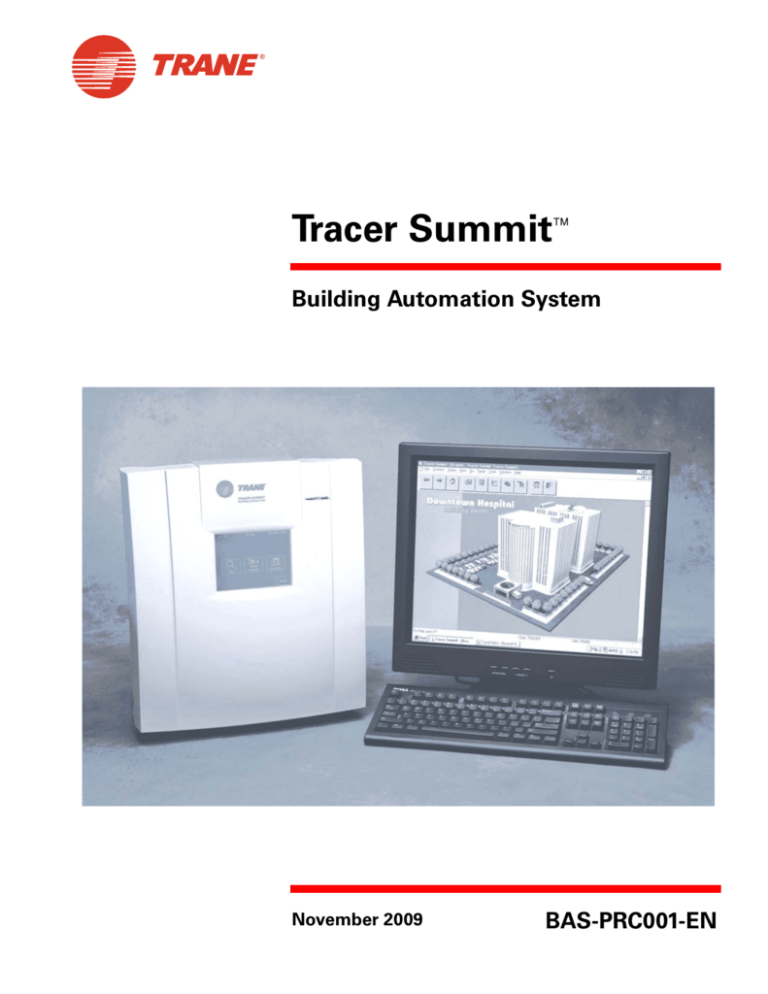
Tracer Summit™
Building Automation System
November 2009
BAS-PRC001-EN
Overview
The Tracer Summit building automation
system (BAS) provides building control
through a single, integrated system. A
building’s climate, lighting, scheduling,
energy consumption, and other
controllable features can all be
programmed and managed by a Tracer
Summit BAS.
A typical Tracer Summit BAS consists of
building control units (BCUs) and PC
Workstations that use Tracer Summit
software. BCUs provide centralized
building control through communication
to building equipment, such as heating,
ventilating, and air-conditioning (HVAC)
equipment. A building operator uses a
PC Workstation and/or the operator
display (touch screen) on the BCU to
perform system operator tasks. The PC
Workstation communicates to BCUs
over an Ethernet network. Remote
access to the system is available using
either a modem in the BCU or an
Internet connection with Tracer ES.
Tracer Summit software turns complex
requirements into simple, consistent,
reliable operations. A Tracer Summit
system can control any type of HVAC
equipment, but gives the additional
benefits of an Integrated Comfort
system when it is linked with Trane
HVAC equipment. In addition, a Tracer
Summit system can also connect to
other building systems such as fire
alarms, security systems, and lab hood
controls.
Add-on packages
Tracer Summit PC Workstation software
is available with four add-on software
packages: Tracer 100/Tracker
Communications Package, Building
Management Package, Enterprise
Management Package, and Tracer
Summit Critical Control System
package. For information on the first
three packages, see PC Workstation
additional capabilities on page 10.
The Tracer Summit Critical Control
System package is an enhanced version
of Tracer Summit software that provides
complete environment management for
FDA-regulated areas. See the Tracer
Summit Critical Control System product
catalog (BAS-PRC017-EN) for more
information.
Companion product
Tracer Summit Energy Services is a
companion product to Tracer Summit
systems and is available to meet everincreasing building management needs.
For more information, see Companion
product on page 14.
Specifications
See page 15 for product specifications
on Tracer Summit systems.
™ ® The following are trademarks or registered trademarks of their respective companies: CenTraVac, Climate Changer, Horizon, IntelliPak, Integrated Comfort, Precedent, ReliaTel, Series R, TCM,
Tracer, Tracer Summit, Tracker, Trane, Traq, UCP1, UCP2, VariTrac, VariTrane, Voyager from Trane;
Adobe and Acrobat from Adobe Systems Incorporated; ARCNET from Datapoint Corporation; BACnet
from ASHRAE; LonTalk and LonMark from Echelon Corporation; MODBUS from Schneider Automation,
Inc.; Windows and Internet Explorer from Microsoft Corporation.
©
2 2009 Trane
All rights reserved
BAS-PRC001-EN
Contents
Overview . . . . . . . . . . . . . . . . . . . . . . . . . . . . . . 2
Features and benefits . . . . . . . . . . . . . . . . . . . . 4
Ease of operation . . . . . . . . . . . . . . . . . . . . . . . . . . . . . . . . . 4
Ease of service . . . . . . . . . . . . . . . . . . . . . . . . . . . . . . . . . . . .5
Chiller plant control . . . . . . . . . . . . . . . . . . . . . . . . . . . . . . . .5
Area control . . . . . . . . . . . . . . . . . . . . . . . . . . . . . . . . . . . . . .5
Trend Viewer . . . . . . . . . . . . . . . . . . . . . . . . . . . . . . . . . . . . .5
Timed override . . . . . . . . . . . . . . . . . . . . . . . . . . . . . . . . . . . .5
Variable-air-volume air system (VAS) . . . . . . . . . . . . . . . . .5
Indoor air quality control . . . . . . . . . . . . . . . . . . . . . . . . . . . .5
Custom programming . . . . . . . . . . . . . . . . . . . . . . . . . . . . . .5
Managing multiple facilities . . . . . . . . . . . . . . . . . . . . . . . . .5
Advanced alarming . . . . . . . . . . . . . . . . . . . . . . . . . . . . . . . .6
Time-of-day scheduling . . . . . . . . . . . . . . . . . . . . . . . . . . . . .6
Engineered smoke control . . . . . . . . . . . . . . . . . . . . . . . . . .7
Migration . . . . . . . . . . . . . . . . . . . . . . . . . . . . . . . . . . . . . . . .7
System integration . . . . . . . . . . . . . . . . . . . . . . . . . . . . . . . . .7
System architecture . . . . . . . . . . . . . . . . . . . . . . 8
Operator interface . . . . . . . . . . . . . . . . . . . . . . . 9
PC Workstation . . . . . . . . . . . . . . . . . . . . . . . . . . . . . . . . . . . .9
Operator display . . . . . . . . . . . . . . . . . . . . . . . . . . . . . . . . . .11
Tracer ES . . . . . . . . . . . . . . . . . . . . . . . . . . . . . . . . . . . . . . . .11
Building control . . . . . . . . . . . . . . . . . . . . . . . . 12
Unit control . . . . . . . . . . . . . . . . . . . . . . . . . . . 13
Trane chillers . . . . . . . . . . . . . . . . . . . . . . . . . . . . . . . . . . . .13
Trane airside equipment . . . . . . . . . . . . . . . . . . . . . . . . . . .13
Trane unitary equipment . . . . . . . . . . . . . . . . . . . . . . . . . . .13
Trane field-installed controllers . . . . . . . . . . . . . . . . . . . . .13
Companion products . . . . . . . . . . . . . . . . . . . . 14
Tracer Summit Energy Services . . . . . . . . . . . . . . . . . . . . .14
Specifications . . . . . . . . . . . . . . . . . . . . . . . . . . 15
PC Workstation . . . . . . . . . . . . . . . . . . . . . . . . . . . . . . . . . . .15
BCU . . . . . . . . . . . . . . . . . . . . . . . . . . . . . . . . . . . . . . . . . . . .15
Communications . . . . . . . . . . . . . . . . . . . . . . . . . . . . . . . . .15
BACnet PICS—BCU . . . . . . . . . . . . . . . . . . . . . . . . . . . . . . .18
BACnet PICS—PC Workstation . . . . . . . . . . . . . . . . . . . . . .19
BAS-PRC001-EN
3
Features and benefits
The Tracer Summit system is designed
to provide solutions needed by building
owners and daily operators. The system
can be quickly installed, programmed,
and commissioned to run reliably. A
user-friendly interface combined with a
series of pre-engineered system
applications makes this possible.
The applications work together to
maximize the comfort of people in the
building, while minimizing energy use.
Ease of operation
The daily operator is the most critical
user of the system. Extensive usability
testing helps make Tracer Summit PC
Workstation software intuitive and easy
to use.
End-users in a laboratory environment
test preliminary software. If software
functions prove difficult to use, they are
refined until testers can more easily
perform daily tasks.
These tasks include:
MyTraneControls.com
•
•
•
•
•
•
•
•
MyTraneControls.com is a free online
Web site designed to assist Tracer
Summit system owners and operators.
Members log on to
www.MyTraneControls.com to learn
more about their Tracer Summit system
through articles, frequently asked
questions (FAQs), webinars, and access
to GCS technical support resources and
training opportunities. Members can
update their system with service packs
by downloading them from
MyTraneControls.com.
Viewing the status of the building
Changing setpoints
Viewing and modifying schedules
Responding to alarms
Viewing historical report information
Viewing trended information
Performing timed overrides
Troubleshooting
A daily operator can perform these tasks
by clicking a toolbar button located at the
top of the Tracer Summit system
window (see Figure 1).
Online help
PC Workstation software includes a
powerful online help system for
assistance with system functions and
editor and dialog windows.
Daily operator training
There are many classes available both
locally and in St. Paul. Contact Trane’s
College of Building Automation for
specifics on courses, and the dates and
locations they’ll be offered.
Figure 1. View building status in Tracer Summit
4
BAS-PRC001-EN
Ease of service
The optional Rover service tool can be
launched from Tracer Summit software
to identify problems, test functionality,
change configuration, create and edit
programming, and monitor status
information for LonTalk unit controllers
on the system. From an operator on site,
to a technician several miles away using
a remote connection, the combination of
Tracer Summit software and a Rover
service tool provide the data and
functionality required to fully and
conveniently service the building
automation system.
Chiller plant control
The Tracer Summit chiller plant control
application provides intelligent control
and comprehensive monitoring of
system components, including:
• Multiple chillers
• Related pumps and valves
• Cooling towers and ice tanks
The chiller plant control application
balances system efficiency and
equipment runtime to optimize system
performance.
The application also provides status
information that can help with
troubleshooting. The status information
indicates what is happening in the chiller
plant as well as what to expect next,
based on current operating conditions.
long time periods. Trend data is stored
on a database on the PC Workstation.
Note: The PC Workstation must be
online and connected to the BCU to
capture continuous data from the BCU.
The BCU temporarily caches trended
values, so if a connection is lost for a
short amount of time, no gaps will be
seen in the data.
Timed override
As a part of the Area Control application,
the timed override feature enables
building occupants and management
staff to temporarily override HVAC and
lighting equipment.
Users can perform overrides from the
zone sensor, the BCU operator display,
the Tracer Summit PC Workstation
software, or Tracer ES.
Variable-air-volume air
system (VAS)
The Tracer Summit variable-air-volume
air system (VAS) control coordinates airhandling units and VAV boxes within a
building. VAV units are assigned to the
air-handling unit that supplies air to
them. A VAS control starts up and shuts
down the system to assure proper static
pressure control. Energy-saving
applications, including static pressure
optimization and ventilation optimization,
are available as standard VAS control
features for LonTalk systems.
Indoor air quality control
Indoor air quality is an issue of rising
importance from the perspectives of
comfort as well as governmental
regulation and liability. A Tracer Summit
system intelligently monitors indoor air
quality to make maintaining it easy.
When used in conjunction with Trane
Traq dampers, Tracer Summit software
can adjust the intake of outdoor air to
ensure compliance with ASHRAE
standards.
Custom programming
A powerful custom programming
language (CPL) allows system
customizing for specific applications.
Typically, CPL routines are created to
sequence equipment, calculate
setpoints and values, and perform
shutdown sequences.
Managing multiple facilities
To assist in managing multiple facility
locations, the Tracer Summit Enterprise
Management Package includes utilities
that help the daily operator work more
Figure 2. Trend Viewer
The chiller plant control program is
suitable for both comfort and industrial
applications, as well as control
sequences including thermal storage
and dual-fuel chiller systems.
Area control
Area control coordinates HVAC
equipment and lighting for a specific
area of the building.
Unit controllers and binary outputs are
assigned as members of a common
area, which makes it easy to change
setpoints, do scheduling, and perform
overrides at the PC Workstation.
Trend Viewer
The Trend Viewer (see Figure 2) allows
the user to track data over time; to
overlay alarms, events, and overrides;
and to collect trended data that spans
BAS-PRC001-EN
5
efficiently. For example, a typical task is
making the same or similar changes to
time-of-day schedules across multiple
locations. The Enterprise Management
Package offers the ability to perform
global schedule changes, which means
that one simple schedule change can be
duplicated across an entire enterprise or
group of facilities.
Advanced alarming
The advanced alarming features of a
Tracer Summit system include the
following:
• Alarm categories: Five optional, configurable alarm categories have been
added. Alarms can be categorized
according to their severity, for example. Alarm filtering allows alarms
within a category to be viewed at one
time. A button appears on the task bar
for each category that has been configured. The number of alarms for that
category is shown on the button (see
Figure 3.)
• Pop-up messaging: Alarm categories
can be configured to trigger pop-up
messages. Comments can be entered
in a pop-up message that show up in
the event log.
• Event log: A column has been added
to the event log for the new alarm categories and for the comments field.
Event log columns can be hidden and
widths can be expanded. The event
log configuration is automatically
saved after set up.
• Cell phone: Text messages can be
routed from a Tracer Summit system
to a cell phone.
to assist in troubleshooting any
equipment or system issues with the
particular facility in question.
With either the Building Management
Package option or the Enterprise
Management Package option added to a
Tracer Summit system, after-hours
forwarding of alarms can be scheduled
to be sent to various people by e-mail.
This function closely models how an
after-hours and weekend call center is
scheduled. Once the alarm message has
been received, the on-call person can
use the powerful filtering features of the
Tracer Summit alarm and event log
Time-of-day scheduling
The Building Management Package and
the Enterprise Management Package
allow flexible scheduling of system
administrative tasks to occur during
times when the normal system operator
is not at work, for instance, at night.
Certain tasks such as gathering report
and alarm data from the remote facilities
can be scheduled to occur at a
convenient time or when the telephone
rates are the lowest if dial-up
connections are used.
Time-of-day scheduling (see Figure 3) is
one of a facility’s most important
energy-saving strategies. Making sure
that equipment runs only when it is
needed ensures that energy usage is
minimized.
Schedules for equipment serving a
specific area of the building are
accessed by viewing the graphic for that
area, and then clicking the Schedule
button on the task bar.
Figure 3. Scheduling editor
6
BAS-PRC001-EN
Schedules can be used for:
System integration
LonTalk® support
• Keeping the equipment running at
minimal energy-use levels on weekends and holidays
• Creating exception schedules for
times in which the schedule needs to
deviate from the standard one
• Performing optimal start and stop of
equipment to optimize energy use
while maintaining comfort
requirements
• Changing setpoints at specific times
of day
Tracer Summit systems provides open
system options that provide the
following capabilities:
The BCU includes native support for
LonTalk-based controllers. The Trane
implementation of LonTalk utilizes
twisted-pair physical media. In addition
to Tracer controllers, any LonTalkcompatible controller can be included on
a LonTalk link. These devices must use
FTT-10A or FT-X1 transceivers and
support LonTalk standard network
variable types (SNVTs). This allows for
easy integration of devices such as
variable frequency drives, lighting,
security, humidifiers, and boilers.
Engineered smoke control
Tracer Summit software can be used to
control an automatic smoke-control
system. When used with a fire alarm
control panel (provided by other
suppliers), Tracer Summit software can
help protect occupants by controlling the
flow of smoke in an emergency.
In addition to smoke control, with a
firefighter’s control panel, the firefighter
can see the status of smoke control and
implement overrides as required.
For details, see the Engineered Smoke
Control System for Tracer Summit
applications guide, BAS-APG001-EN.
Migration
Existing Tracer systems can easily
migrate to the current technologies of
Tracer Summit systems. Upgrading a
Tracer 100 system provides benefits
including network communications,
state-of-the-art user interface, and the
ability to connect to multiple generations
of controllers.
For facilities where system upgrades are
prohibitive, Tracer Summit systems also
allows integration of Tracer 100 and
legacy Tracker systems. A Tracer
Summit system can communicate with
most of the controllers in Tracer 100 and
Tracker systems. The integration of
legacy systems into the Tracer Summit
workstation allows the facility or
enterprise operator to manage all
facilities with a single workstation.
BAS-PRC001-EN
• Allows easy integration of equipment
and auxiliary systems into a single
system, or multiple buildings into a
single network, which can be operated from a single location.
• Assures competitive bidding for system additions and modifications.
• Provides an easy method to connect
Trane equipment and Tracer Summit
systems into other BAS or
Supervisory Control and Data
Acquisition (SCADA) systems.
The goal of any interoperable system is
to provide an economical, reliable, and
repeatable solution. By basing Tracer
Summit technology on open standard
protocols, this goal is easily accomplished. The use of open standard
protocols assures long-term support
across a broad number of suppliers.
Trane has experience in providing
integrated, interoperable solutions on
thousands of installations. These range
from simple HVAC solutions that
combine Tracer controllers with variable
frequency drives, to sophisticated
installations that combine many building
sub-systems. For more information, see
the Interoperable Solutions brochure
(BAS-SLB004-EN) and the Connections
CD (BAS-CMC002-EN).
BACnet support
An open, standard protocol is essential
for building control system integration.
The Tracer Summit system uses the
BACnet protocol to facilitate
communication between Tracer Summit
BCUs and PC Workstations as well as a
means to integrate products and
systems, including fire panels, fume
hoods, and non-Trane BAS or HVAC
equipment. Trane is a member of the
BACnet Manufacturers Association. For
more details on BACnet, refer to
www.bacnet.org.
Trane is a sponsor of the LonMark®
Interoperability Association. For more
details on LonMark, refer to
www.lonmark.org.
Other protocol support
While support for open standard
protocols is the preferred method of
integrating systems and system
components, gateways are another
method that can be used for this
purpose. A gateway translates one set
of communication rules to another,
allowing devices that use different
protocols to pass data to each other. The
use of these gateways is the ideal
solution to:
• Interface with controllers such as
meters, variable frequency drives, fire
alarm systems, and security
• Provide HVAC data out to a proprietary
BAS, or to a SCADA system for
industrial applications
A gateway enables a wide variety of
devices that use the MODBUS RTU
protocol to connect to a Tracer Summit
building automation system using
BACnet. It can also be programmed to
interface to other common
communication protocols.
7
System architecture
The Tracer Summit system architecture
is highly distributed (Figure 4). Control
can occur at the appropriate system
level to ensure integrity.
The three levels of control are:
• Operator interface
• Building control
• Unit control
Figure 4. A typical example of Tracer Summit system architecture
Tracer ES
8
BAS-PRC001-EN
Operator interface
Operators have four interface options for
managing their building automation
systems:
• PC Workstation
• Operator display
• Tracer ES
PC Workstation
The Tracer Summit PC Workstation
software provides a graphical user
interface for setting up, operating, and
modifying the building automation
system. This interface along with the
use of Microsoft Windows and Internet
Explorer make building operation as
easy as surfing the World Wide Web.
Tracer Summit PC Workstation software
can be run on a PC located at the
building site or from a remote location.
The software can also be used to
connect to and monitor operations for
multiple building sites. For example, a
user can view the status of a chiller
located in the next room, while
modifying the schedule for a building
that is across the city or around the
world.
Tracer Summit PC Workstation software
runs with Microsoft Windows Vista
Business or Windows XP Professional
operating systems. Operating with
Windows offers the flexibility of running
other popular applications for
communications and office productivity.
See Hardware requirements on page 15
for more PC Workstation details.
The Tracer Summit PC Workstation is
the most common interface for
accessing building automation systems.
The primary features are described in
this section.
Alarm processing and event log
The daily operator must be able to deal
effectively with abnormal conditions.
When the system detects such a
condition, it routes the alarm to the
appropriate PC Workstation(s), pagers,
cell phones, and e-mail addresses.
At the PC Workstation, alarms and other
system events are stored in the alarm
and event log. The alarm and event log
have five optional, configurable alarm
categories that can be used to filter and
sort the alarms. Sorting can be based,
for example, on severity level.
If another application is in use when an
abnormal condition occurs, an alarm is
indicated in the task bar at the bottom of
the screen. Pop-up messages can also
be associated with alarms, to alert the
user of the abnormal condition.
The event log displays critical data about
the alarm including which building it is
from, whether it requires an
acknowledgment, and any comments
that may have been entered in the popup dialog box.
Critical alarms can be set up with
messages and graphics that can aid in
troubleshooting problems.
A series of easy-to-use filters can be
used to show only desired events: For
example, a filter can be used to view
alarms only from a specific building, to
view alarms received only at a specific
time, or only alarms from a specific
alarm category.
Graphics
Tracer Summit software uses graphics
as a means of viewing and navigating
through the system, much like walking
through the building. Graphics show
data related to building environments,
including climate, lighting, and other
controllable operations. Graphics can be
used to change setpoints and override
equipment operation.
Putting graphics in groups makes it
possible to move logically from place to
place within a building. Target buttons
can be added to graphics to provide links
to related sources.
BAS-PRC001-EN
The navigation tree—a hierarchical, treestyle representation showing the
relationship of all graphics for a facility
(see Figure 1 on page 4)—provides a
way to move between graphics and
buildings. The navigation tree is a
standard part of every system and can
be easily modified.
Forward, Back, and Home buttons on
the menu bar provide another way to
move among graphics.
Graphics library and graphics editing
A library of standard graphics
representing all Trane equipment and
applications is included in the Tracer
Summit software. In addition, standard
3D graphics provide a better visual
representation of equipment along with
relevant equipment information. These
standard graphics have been tested to
provide a consistently high level of
quality and usability.
Custom graphics can also be created by
incorporating visual elements from the
building, such as floor plans or exterior
views from CAD drawings, into standard
graphics. Custom graphics can also
include digital photography and
animated images such as a rotating fan.
Graphics can include the following
elements:
• Any data available in the system as a
numerical or text value
• Analog values that can change colors
based on deviation from a desired
value for quick recognition of operational issues
• User-defined static text in a wide
choice of fonts and colors
• Animation using images to represent
binary and analog values, animated
GIF, or video (AVI) files
• Hyperlinked text and images that can
be added to move between graphics
• Hyperlinks to any Windows-compatible files or applications (for example,
Adobe Acrobat documents, Excel
spreadsheets, and external Web sites)
• Multiple graphic images that conform
to the industry standard JPEG, GIF, or
BMP formats, in addition to the library
of HVAC equipment images included
with the Tracer Summit software
package
9
• Charting of historical trends or realtime values
• User controls including push buttons,
check boxes, drop-down list boxes,
and entry fields
• A hand icon appearing on override buttons when controls are overridden
• Representation of equipment status,
for example, a thermal storage tank at
40% of its capacity
PC Workstation system utilities
Data, text, setpoint overrides, and other
information can be added to graphics by
using the Graphics editor that is part of
the software package. This editor allows
any user with proper security to create
or modify graphics.
Database changes made by other
workstations are automatically reflected
at each PC without the need for a central
server. If a BCU goes offline, the PC
Workstation software automatically
reloads its database without the need
for intervention.
Tools available in the Graphics editor can
align graphical elements, determine
which elements appear on top, and
perform cut, copy, and paste functions.
Reports and trends
Viewing current, as well as previous
system operations, provides invaluable
information. The Tracer Summit reports
and trends feature provides this ability.
Trends can present a variety of data
samples at defined intervals to show at
a glance the historical and current status
of the facility. These trends can be
graphically viewed on the screen,
printed out, and stored on disk.
To create a new trend, the user rightclicks on a status or control point (for
example, space temperature) on a
graphic, and then selects Create Trend
Viewer. Additional points can be added
to the trend in a similar manner.
Standard reports for each piece of Trane
equipment provide a valuable source of
record-keeping and troubleshooting
data.
In addition, standard reports are
provided for ASHRAE Guideline 147,
Monitoring of large tonnage chillers.
Finally, custom reports can be defined
for any desired values, such as energy
usage or run-time reporting.
10
In addition to operations and
configuration, the Tracer Summit PC
Workstation software also provides
utilities for management of the system.
• Save and restore
When connected to a network of BCUs,
the PC Workstation software constantly
analyzes database status and updates
information on the PC hard drive.
The system database can be archived or
backed up for local or offsite storage of
data in case it is needed for restoring the
system in the event of a problem.
• Security
A sophisticated password system
protects the Tracer Summit system from
unauthorized access. Each operator logs
on to the system and has access to only
the applications, editors, objects, and
properties to which access rights are
assigned.
An operator with proper security can
access all levels of the system and has
the ability to alter passwords.
• Diagnostics
Tracer Summit software constantly
evaluates all of the system parameters
and reports abnormal conditions to the
operator. Problems ranging from a
communication failure due to a broken
wire to the failure of a sensor are
automatically detected and reported.
PC Workstation additional
capabilities
Tracer Summit PC Workstation software
has four add-on software packages that
provide additional capabilities.
With the Tracer 100/Tracker Communication package, the PC Workstation can
communicate with, and receive alarms
from, Trane’s legacy system controllers.
The Building Management package
makes it easy to schedule site
communication and database back-ups
during after-hours operation. This
package also allows scheduling of
alarms, in the form of e-mail messages,
to appropriate personnel. E-mails can be
sent to any device that can receive email messages.
The Enterprise Management package
includes all of the features of the other
two add-on packages and also allows
changes to be applied across multiple
locations. In addition, the package
allows multiple PCs to share data, the
event log, and graphics with a central
PC.
The Tracer Summit Critical Control
System package is an enhanced version
of Tracer Summit software that provides
complete environment management for
FDA-regulated areas, from research to
distribution. For more information, see
the Tracer Summit Critical Control
System product catalog (BAS-PRC017EN).
• Network management functions
The Tracer Summit PC Workstation
software includes field panel reset and
restore, abnormal condition monitoring,
network routing, and BACnet support.
• Configuring controllers
The Tracer Summit PC Workstation
software can be used to configure and
troubleshoot controllers found on Trane
equipment. This setup consists of
setpoints, minimum on and off times,
and other user-defined parameters.
BAS-PRC001-EN
Operator display
Tracer ES
The optional Tracer Summit BCU
operator display provides an easy-to-use
interface for:
Tracer ES is web-based, building
automation software that works
seamlessly with existing Tracer Summit
systems. It dramatically simplifies
managing and operating multiple
facilities, letting owners and operators
have an enterprise management view of
all of building control systems. Tracer ES
allows access to information about any
building from any secure PC that is
connected to the Internet.
• Viewing equipment and system status
information
• Making changes to time-of-day schedule
• Changing system setpoints
• Viewing the alarm and event log
• Performing timed overrides
The operator display is an intuitive,
touch-screen display that is located on
the front of the Tracer Summit BCU. The
operator display can also show graphical
images indicating the type of equipment
or area that is being controlled by the
Tracer Summit system.
The BCU operator display offers a way to
make daily operation changes to the
system without the need for a PC
Workstation at the facility. For a facility
with multiple BCUs, information for the
entire Tracer Summit system can be
accessed through a single operator
display.
BAS-PRC001-EN
Tracer ES provides easy integration and
compatibility with a Tracer Summit
system:
• Easily connects with existing IT infrastructure
• Runs on a central server with SQL
database
• Scalable to work economically for
small sites or efficiently with multiple
sites
• Seamlessly works with an existing
Trane Tracer Summit system
• Integrates with any qualified and nonqualified BACnet building system
11
Building control
The Tracer Summit BCU is an intelligent
field panel that communicates with unit
controllers. Unit controllers provide
stand-alone control of HVAC equipment.
The BCU scans all unit controllers to
update information and coordinate
building control, including building
subsystems such as chiller plants. A site
can have multiple BCUs and PC
Workstations connected over a local
area network (LAN). The LAN allows
these varied components to be
managed as one system.
The BCU is housed in a protective
enclosure that allows for easy access to
the termination and main circuit boards
(see Figure 5).
Figure 5. BMTX BCU board components
Address DIP
switch
24 Vac power
connector
Seven-segment
LED display
EIA-232
BACnet port
Modem card
(optional)
Isolated Comm3
NEW!
Non-Isolated Comm3
or
Comm4
Modem, phone
line connector
NEW!
Non-Isolated Comm3
or
Comm4
LonTalk
Operator
display
connector
Binary inputs
12
Ethernet
connector
BAS-PRC001-EN
Unit control
The Tracer Summit system provides
centralized control for Trane HVAC and
other unit-level equipment. Tracer
Summit software supports the following
Trane equipment:
Trane chillers
• CenTraVac chiller with a UCP2 or a
Tracer CH530 chiller controller
• Series R CenTraVac chiller with a
UCP2 or a Tracer CH530 chiller controller
• Scroll chiller with an IntelliPak, classic,
or Scroll Manager Module (SMM) controller
• Absorption chillers with a UCP2, classic, or Horizon controller
• Series R air-cooled and water-cooled
chillers
Trane airside equipment
• VariTrane with a Trane variable-air-volume controller (VAV I, II, III, and IV) or
Tracer VV550 VAV controller
• VariTrac II changeover VAV system
• Fan coil with a Trane terminal unit controller (TUC) or Tracer ZN510 or ZN520
controller
• Classroom unit ventilator with a Trane
terminal unit controller (TUC) or Tracer
ZN520 controller
• Air handler with a PCM, UPCM, Tracer
MP580, or Tracer AH540 controller
BAS-PRC001-EN
Trane unitary equipment
• Voyager rooftop air-conditioning unit
• IntelliPak air-conditioning units
• Water-source heat pump with a Trane
terminal unit controller (TUC),
Tracer ZN510 controller, or Tracer
ZN524 controller
• Precedent rooftop air-conditioning
units with ReliaTel controls
Trane field-installed
controllers
• Programmable control module (PCM)
• Universal programmable control module (UPCM)
• Thermostat control module (TCM)
• Trane terminal unit controller (TUC)
• Tracer loop controller
• Tracer MP581 programmable
controller
• Tracer MP501 multi-purpose controller
• Tracer MP503 input/output module
• Tracer ZN511 zone controller
• Tracer ZN517 zone controller
• Tracer ZN521 zone controller
• Tracer ZN523 zone controller
• Tracer ZN524 zone controller
• Tracer AH541 air-handler controller
• Tracer VV551 VAV controller
• Tracer CH531 chiller controller
13
Companion product
Tracer Summit Energy
Services
Tracer Summit Energy Services is an
energy management and advanced
reporting software product that is used
with the Tracer Summit building
automation system. It provides tools to
monitor, analyze, trend, benchmark, and
allocate both energy consumption and
energy costs for your business along
with the means to create reports from
this data. Its purpose is to help you
manage energy operations and
expenses more efficiently so that your
organization can improve its productivity
and profitability. It is designed for both
the technical and non-technical user.
Figure 6 shows an example of Energy
Services software.
Two options of Tracer Summit Energy
Services are available: Energy Manager
and Energy Analyst. Energy Manager
provides a basic platform to enable
tracking, analysis, cost allocation,
benchmarking, and invoicing of energy
meters and sub-meters as well as
nonenergy points such as weather data.
Energy Analyst provides more
comprehensive energy management
tools to enable in-depth analysis,
reporting, and plant analysis.
applications or multi-site applications
that have a central energy manager
station. The enterprise package is best
suited for multi-site applications or sites
with multiple users.
For more information, refer to the Tracer
Summit Energy Services product
catalog (BAS-PRC015-EN).
Both the Energy Manager and the
Energy Analyst options are available as
desktop packages or as enterprise
packages, depending on customer
requirements. The desktop package is
best suited for single-site Tracer Summit
Figure 6. Example of Tracer Summit Energy Services software
14
BAS-PRC001-EN
Specifications
PC Workstation
Requirements
The following sections specify hardware
and software requirements and
recommendations for the PC
Workstation. The hardware
requirements vary depending upon
which add-on packages are included
with Tracer Summit software.
Desktop PC for Tracer Summit
Workstation Software
The specifications listed below are for
the PC Workstation currently being
recommended to run Tracer Summit by
itself, or along with the optional Tracer
100/Tracker Communications Package or
the Building Communications Package.
If using something other than the model
shown below, it must have the same
capabilities.
Hardware:
• OptiPlex 760 Desktop: OptiPlex 760
Desktop Standard PSU
• Operating System(s): Genuine Windows Vista Business Downgrade, XP
Professional SP2
• Processors: Intel® Core™ 2 Duo Processor E7500 (2.93 GHz, 3M, 1066
MHz, FSB)
• Memory: 1 GB DDR2 non-ECC
SDRAM, 800 MHz, (1 DIMM)
• Video Cards: Integrated Video, Intel®
GMA 4500
• Mouse: Dell USB Optical Mouse with
Scroll, All Black Design
• Keyboard: Dell USB Keyboard, No
Hot Keys
• Monitor: No Monitor
• Thermal: Heat Sink for Intel Celeron
Core 2 Duo Processors, Desktop
• Modem: Modem (56 Kbaud) for
remote workstation
• Power Supply: OptiPlex 760 Desktop
Standard Power Supply
• Energy Smart Options: Dell Energy
Smart Power Management Settings
Enabled
• Boot Hard Drives: 80 GB SATA 3.0
Gb/s and 8 MB DataBurst Cache™
BAS-PRC001-EN
• Floppy Drive Options: 1.44 MB 3.5
Inch Floppy Drive
• Removable Media Storage Device:
16X DVD +/-RW SATA, Data Only
Software Requirements
The PC Workstation must have the
following software installed:
• Genuine Windows Vista® Business
SP1 or higher, or XP Professional SP2
• Internet Explorer Version 6 or 7
Tracer Summit Enterprise
Management Package
The Tracer Summit Enterprise
Management Package software is
installed on one or more PCs for enduser access to the workstation
software. The Tracer Summit database,
however, is installed on a server with
Microsoft SQL Server Database
software installed. If running the Tracer
Summit Enterprise Management
Package, use the following server
hardware and Microsoft SQL Database
specifications:
Server:
• Base Unit: PowerEdge T110 Chassis
with up to 4 Cabled Hard Drives
• Processor: SHIP,T110,NO,NO,DAO
• Memory: 4 GB Memory (4x1GB),
1066 MHz, Single Ranked UDIMM
• Memory: Memory for 1 CPU Platform
• Video Card: X3460 Xeon Processor,
2.8 GHz 8M Cache, Turbo, HT
• Video Card: PowerEdge T110 Heatsink
• Hard Drive: 160 GB 7.2k RPM Serial
ATA 3 Gbps 3.5-in Cabled Hard DriveEntry
• Hard Drive Controller: No Controller
• Operating System: Windows Server
2008 R2, Standard Edition, Includes 5
CALS
• NIC: On-Board Dual Gigabit network
Adapter
• Modem: Baseboard Management
Controller
• CD-ROM or DVD-ROM Drive: DVDRW, SATA, Internal
• CD-ROM or DVD-ROM Drive: MOD,
CBL, SATA ODD, MB, T110
• Documentation Diskette: MOD,
MEDIA, DVD, DOM, PET110
• Feature: Onboard SATA, 1-4 Hard
Drives connected to onboard SATA
Controller - No RAID
SQL Database:
• Windows Server 2008 (32 bit) or Windows Server 2003 (32 bit)
• SQL Server 2005 (32 bit), or SQL
Server 2008 (32 bit)
BCU
Power requirements
Nominal rating: 120/230 Vac;
50 or 60 Hz; 1 pH
Maximum current: 1.0 A at 120 Vac
dedicated circuit breaker
Operating environment
Temperature: From 32°F to 120°F (0°C
to 50°C)
Relative humidity: From 10% to 90%,
non-condensing
Storage environment
Temperature: From –50°F to 150°F
(–46°C to 66°C)
Relative humidity: From 10% to 90%,
non-condensing
Enclosure
NEMA-1
Weight
15 lb (7 kg)
Mounting
Wall-mounted with #10 (5 mm) screws
Mounting surface must be able to
support 60 lb (28 kg)
UL listing
UL-916-PAZX—energy management
UL-864-UUKL—engineered smoke
control
CUL-C22.2—signal devices—Canada
FCC
FCC part 15, Class A
CE
Emissions EN61326:1998 Class B
Immunity EN61326:1998 Commercial
Safety
EN61010-1:2001
15
Processor
Motorola MCF5272 Cold Fire
Memory
FLASH
16 MB
EEPROM 512 KB
SRAM
1 MB
SDRAM
8 MB
Battery
No battery is required. The clock is
maintained for a minimum of three days
by the super capacitor. All other
programs are backed up by nonvolatile
memory.
Operator display (optional)
¼ video graphics adapter (VGA) backlit
liquid crystal display (LCD) with touch
screen
4.5 in. × 3.4 in. (115.2 mm × 86.4 mm)
5.7 in. (144.8 mm) diagonal
Resolution of 320 × 240 pixels
16
Communications
BACnet
Tracer Summit systems communicate
with devices that support:
MODBUS
Tracer Summit systems communicate
with devices that support the MODBUS
Remote Terminal Unit (RTU) protocol
using a variety of Trane integration tools.
• Communications based on the
BACnet ASHRAE/ANSI 135 standard
• ENV-1805-1/ENV-13321-1
• 10BASE-T/100BASE-TX dedicated
Ethernet (ISO/IEC 8802-3) or
Transmission Control Protocol/Internet
Protocol (TCP/IP) compatible network
LonTalk
Tracer Summit systems communicate
with devices that support:
• Communications based on the EIA709.1 (LonTalk) standard
• LonTalk standard network variable
types (SNVTs)
• FTT-10A or FT-X1 transceivers
• Twisted-pair physical media
BAS-PRC001-EN
Figure 8. Minimum clearances for the BMTX BCU enclosure
12 in. (30 cm)
24 in. (60 cm)
to fully open door
12 in. (30 cm)
12 in. (30 cm)
50 in. (130 cm) recommended
36 in. (90 cm)
BAS-PRC001-EN
17
Figure 9. BMTX BCU enclosure dimensions
Top view
Left view
Front view
Right view
Note: Six of the twelve knockouts are
dual-sized knockouts for 1-inch (25 mm)
and 0.75-inch (19 mm) conduit.
18
Bottom view
BAS-PRC001-EN
BACnet PICS—BCU
Standard object types
supported
Basic information
Object types
Vendor name
Trane
Product name
Tracer Summit BCU
Product description
Tracer Summit
Building Control Unit
BACnet standard application services
supported
Application service
Support
Analog input
Creatable
Deletable
Analog output
Creatable
Deletable
Binary input
Creatable
Deletable
Binary output
Creatable
Deletable
Device
Supported
Initiate
Execute
CreateObject
X
X
DeleteObject
X
X
ReadProperty
X
X
BACnet/IP (Annex J)
ReadPropertyMultiple
X
X
Ethernet (ISO/IEC 8802.3), 10-BASE-T
WriteProperty
X
X
Ethernet (ISO/IEC 8802.3), 100-BASE-TX
WritePropertyMultiple
X
X
Point to point, EIA-232
ConfirmedPrivateTransfer
X
X
UnConfirmedPrivateTransfer
X
X
Other
X
BACnet/IP (Annex J)
X
BBMD
X
Supports foreign device registration
ReinitializeDevice
TimeSynchronization
X
Who-Has
I-Have
X
Who-Is
X
X
I-Am
X
X
Data link layer option
Special functions
Maximum APDU size in octets
474
Segmented requests
supported, window size
1
Segmented responses
supported, window size
1
Character sets supported
ANSI, X3.4
BAS-PRC001-EN
19
BACnet PICS—PC Workstation
Standard object types
supported
Basic information
Object types
Vendor name
Trane
Product name
Tracer Summit PC
Workstation
Product description
Tracer Summit PC
Workstation
Device
Supported
Data link layer option
Ethernet (ISO/IEC 8802.3), 10-BASE-T
Ethernet (ISO/IEC 8802.3), 100-BASE-TX
BACnet standard application
services supported
Application service
Support
Point to point, EIA-232
Initiate
Execute
Other
CreateObject
X
DeleteObject
X
ReadProperty
X
ReadPropertyMultiple
X
WriteProperty
X
WritePropertyMultiple
X
ConfirmedPrivateTransfer
X
X
UnConfirmedPrivateTransfer
X
X
ReinitializeDevice
X
TimeSynchronization
X
Who-Is
X
X
I-Am
X
X
BACnet/IP (Annex J)
BBMD
Supports foreign device registration
Special functions
Maximum APDU size in
octets
474
Segmented requests
supported, window size
1
Segmented responses supported, window size
1
Character sets supported
ANSI, X3.4
Literature Order Number
BAS-PRC001-EN
Date
November 2009
Supersedes
BAS-PRC001-EN-0706
Trane
www.trane.com
For more information contact
your local district office or
e-mail us at comfort@trane.com
Since Trane has a policy of continuous product and product data improvement, it reserves the right to
change design and specifications without notice.

